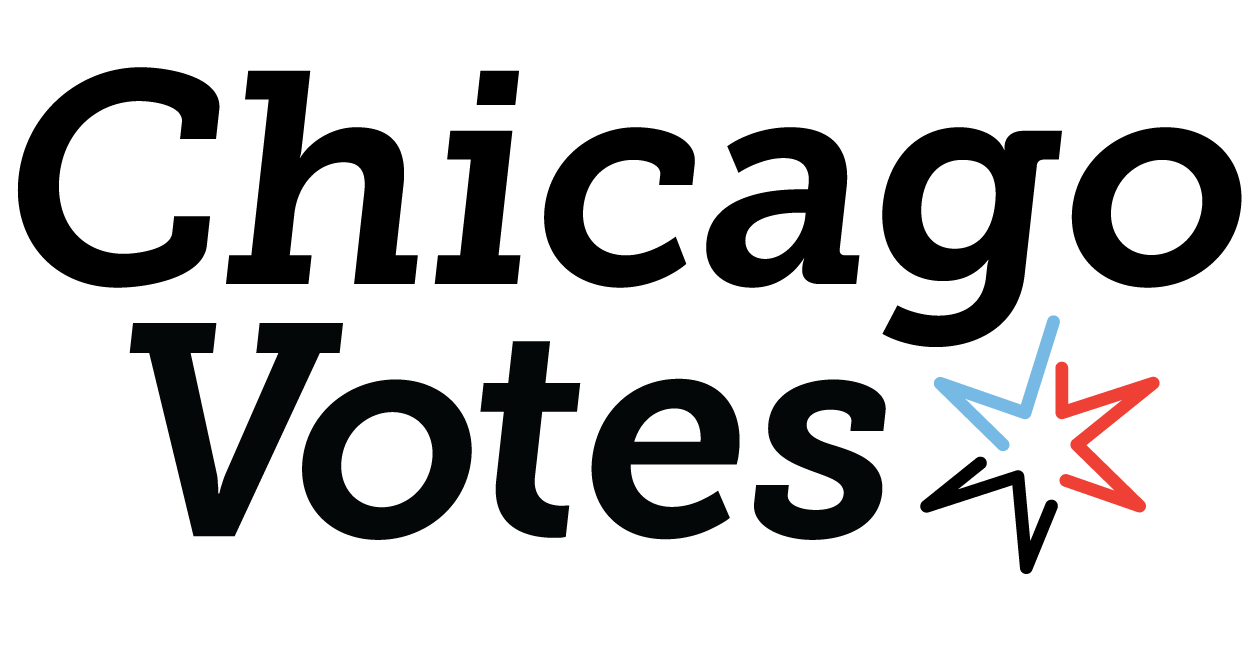It may be a new year, but Chicago Votes is steadfast in our commitment to breaking down barriers to democracy for young Chicagoans! 2024 is a jam-packed year with elections, legislative sessions, and more than a few happy hours, workshops, and programs.
Before we get carried away, let’s lay out all the ways to tune into our work:
- Tell your friends and family to sign up for our monthly newsletter!
- Follow Chicago Votes on Instagram, Twitter, and TikTok @chicagovotes
- Wanna partner with us? Fill out our Partnership Request Form!
- Get involved with our programs like Court Watching, Cook County Jail Votes, and Give A Sh*t on our volunteer platform!
- Donate and join our membership program, the Clique. Based off your giving level you’ll receive some exciting perks!
*New Year’s Resolution: Seek out knowledge, challenge injustice, fight for liberation, and let yourself feel joy*
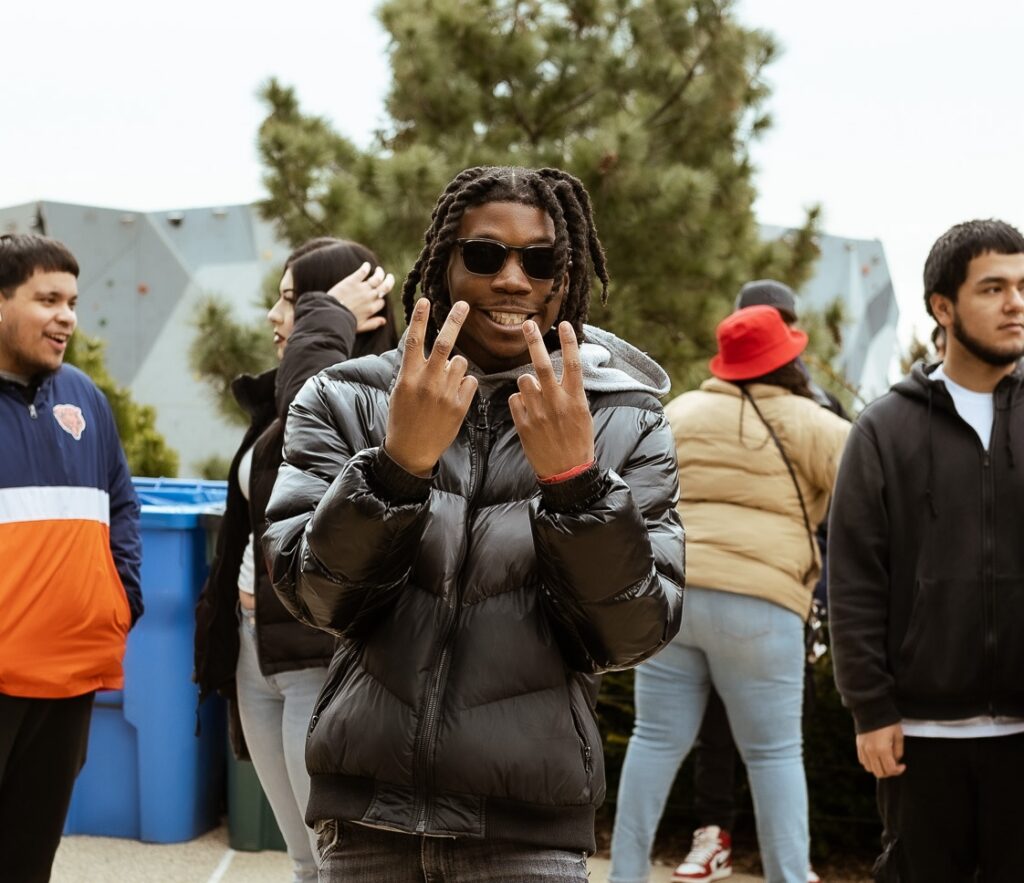
Chicago News to Know!
On the Ballot: Bring Chicago Home
“Bring Chicago Home was born out of the growing need to address our
housing and homelessness crisis
in a real and meaningful way”
Restructure the Real Estate Transfer Tax (RETT), a one-time tax paid when a property is sold. A property sold for less than $1 million would see a decrease. Properties sold for more the $1 million would see an increase.
Nearly 95% of properties would see a decrease. The increase only applies to about 4.2% of properties sold every year.
The new tax is estimated to generate at least $100 million every single year, and be legally dedicated to programs that alleviate homelessness, including assistance for children, veterans, and those fleeing gender-based violence.
New Laws in Illinois Effective January 1, 2024
“More than 300 new Illinois laws took effect on Jan. 1, 2024. They cover a range of topics from public health to public education, pet adoptions, and drug education.”
Some laws regarding the legal system include…
HB1496: Provides the master record file of the Department of Corrections and the Department of Juvenile Justice for each person committed must contain the ethnic and racial background and the person’s last known complete street address before incarceration or legal residence.
SB2134: Prohibits courts from ordering the payment of outstanding fees, fines, taxes or any costs arising from criminal proceedings for the first 180 days after the persons release from a penal institution.
SB1886: Ensures a court cannot order that a person on probation, conditional discharge, or supervision refrain from having cannabis or alcohol in his or her body unless the presence of an intoxicating compound is an element of the offense charged or the person is participating in a Problem-Solving Court.

Volunteer with Chicago Votes
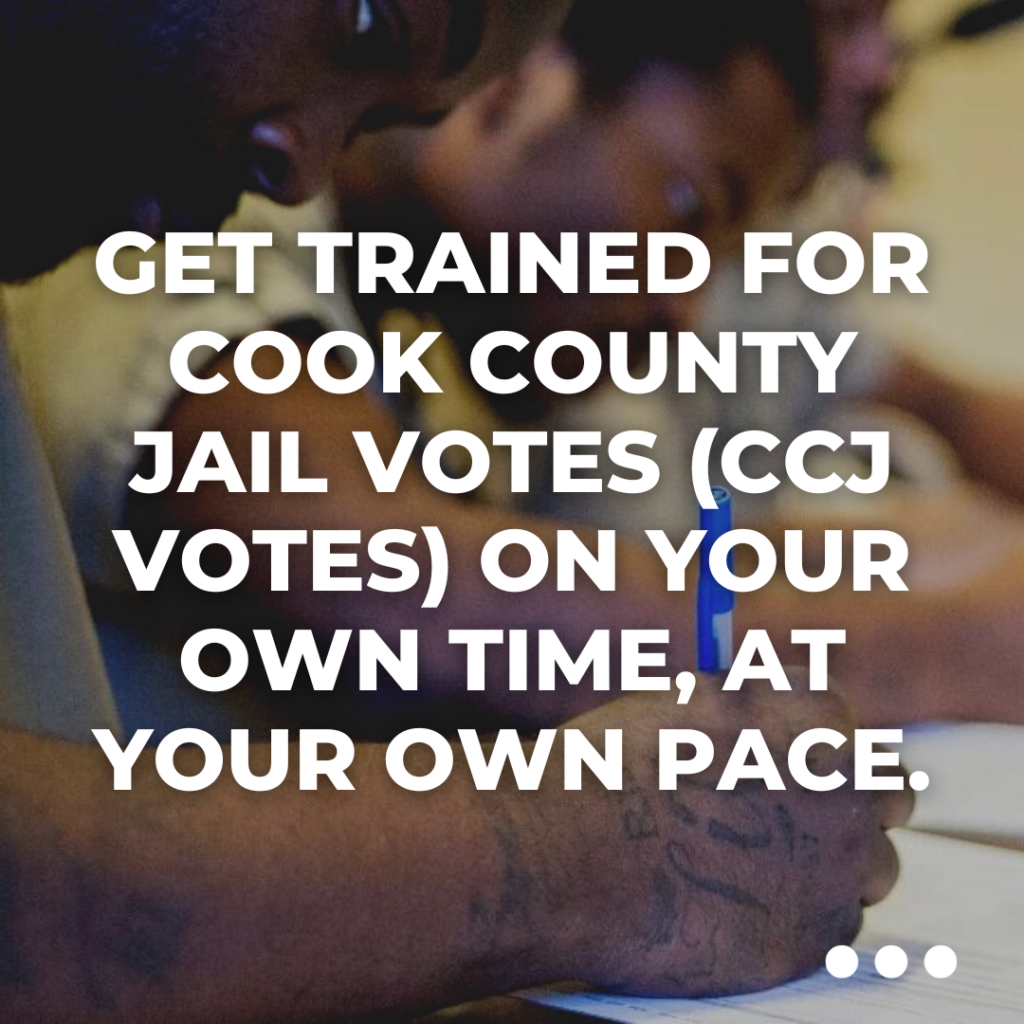
Become a CCJ Votes volunteer, in a few steps. Start by completing the fully online, self-paced Cook County Jail Votes training. Once you complete the training course, you will begin receiving monthly CCJ Votes opportunities in your inbox!
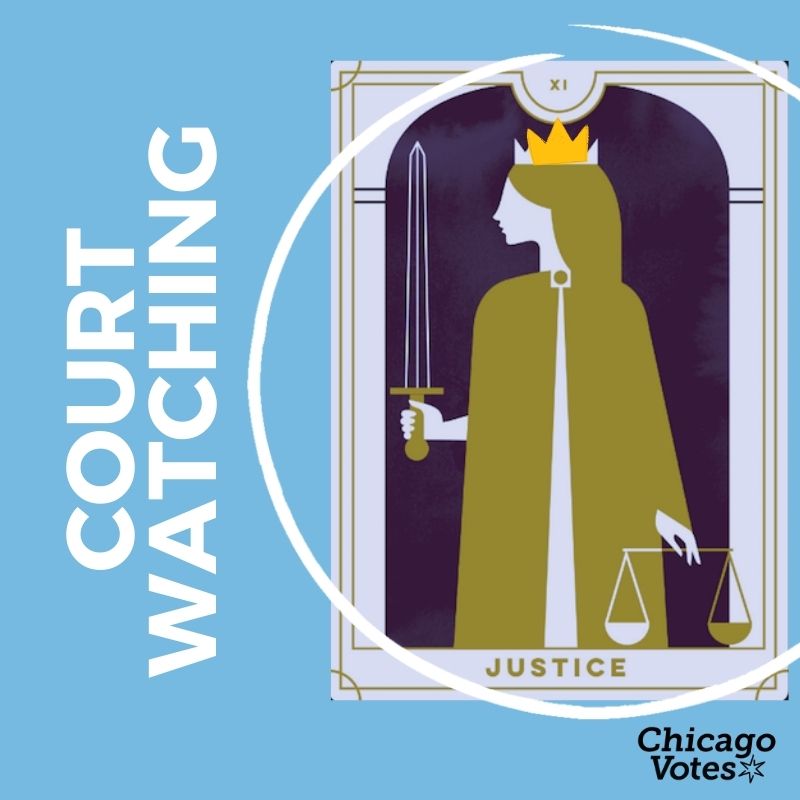
Chicago Votes and the Illinois Alliance for Reentry & Justice have launched a court-watching program, sending community members inside Cook County Criminal Court to watch judges and collect data on bias and misconduct. The data collected will help in the creation of a judicial voter guide in 2024.
Get trained to become a court watcher online, at your own pace.
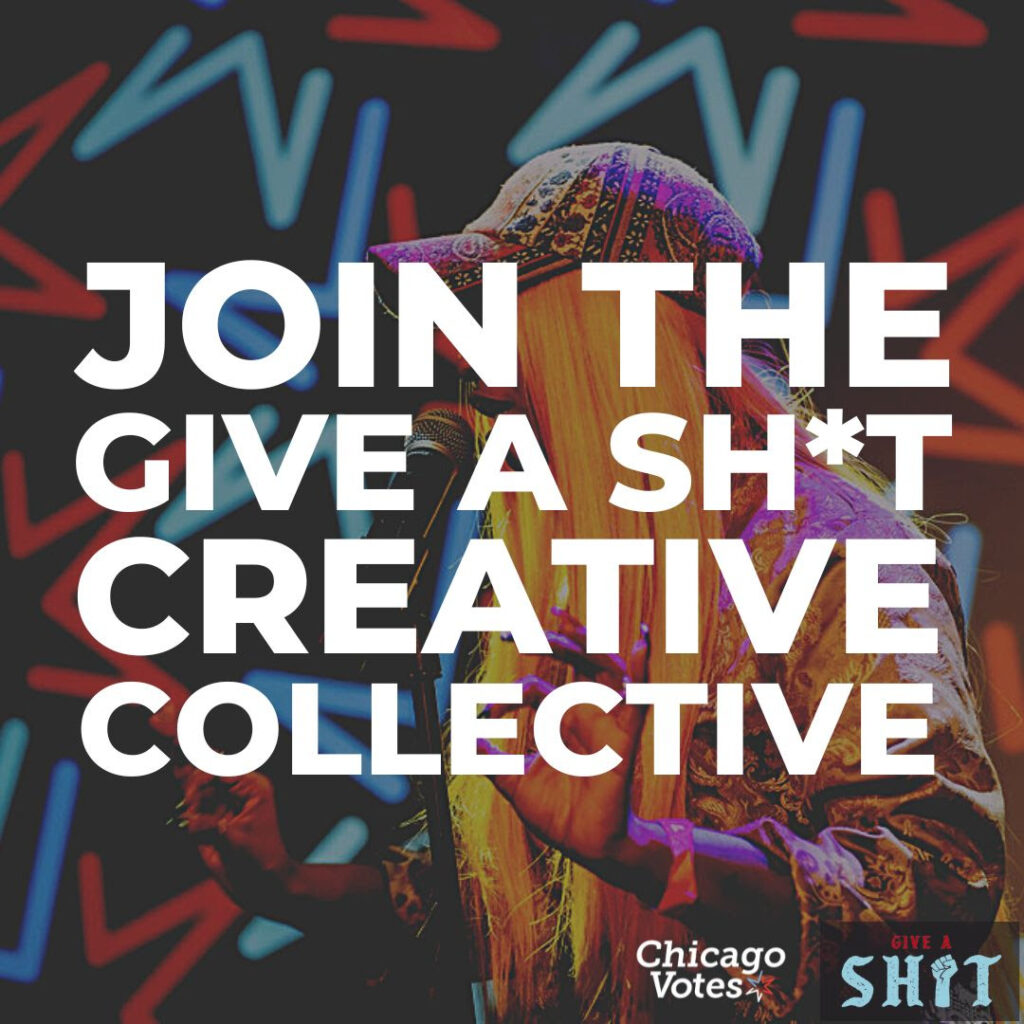
Our Give A Sh*t Creative Collective is a hub for creatives to rethink how we engage young Chicagoans in the political process. The Collective is made up of a diverse set of artists, including designers, musicians, poets, and videographers. Joining gives you access to paid opportunities, including mini-grants.
Updates & More!
Voting in Prison
At the start of the 2024 legislative session, we will be reintroducing a bill to re-enfranchise people in prison. More updates to come!
In the meantime, become an expert on felony disenfranchisement and the need to restore voting rights to people in prison here.
Sh*t Talks!
Season 4 of Sh*t Talks wrapped up at the end of the year and is available on Youtube and wherever you stream your podcasts.
Sh*t Talks conversations feature young Chicagoans in conversation about issues impacting them and the city. They offer radical imagination, hope, and realness.
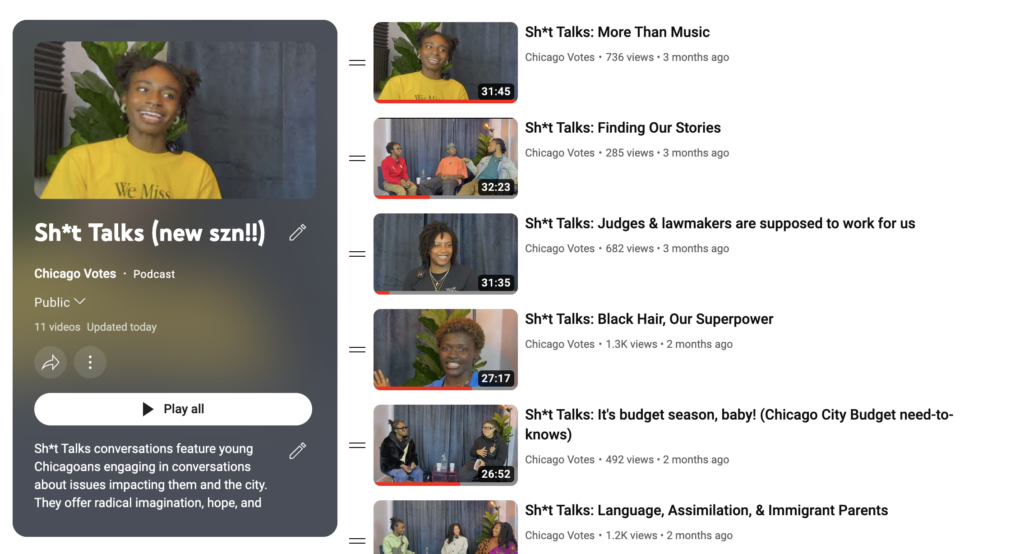
Season 4 Lineup:
More Than Music: The connection between hip-hop, rap, and community is indisputable, but how does it show up in Chicago? How are artists in Chicago using their platform for advocacy and change? Sit down with host Naira, MfnMelo, and Theresa Ashford to find out.
Finding Our Stories: Naira is joined by Makafui Searcy, the founder of Fourtune House, and David W Johnson, the founder of True Chicago, to talk about finding our familial stories, the challenges in documenting and preserving family history, and reconnecting with family members.
Judges & Lawmakers Are Supposed to Work for Us: Naira sits down with two of Chicago Votes’ very own: Camille Williams, program manager, and Frederique Desrosiers, policy manager. Together, they break down the judicial and legislative branches in a way that actually makes sense and make sure you know how to be a part of changing/dismantling these systems.
Black Hair, Our Superpower: Tre King and Elizabeth Tutu are two Columbia College Chicago graduate film students creating a documentary focused on young black individuals’ relationship with their hair and capturing it through film photography. Together, they discuss the cultural significance of hair in the Black community, and the importance of representation in media for shaping aspirations and self-confidence, and more than one hairstyle disaster…
It’s budget season, baby! (Chicago City Budget need-to-knows): Together, Naira and Natalie, City Bureau’s Documenters Coordinator and City Budget expert, break down the city budget process, encourage residents to participate in public hearings, and highlight the impact of budget decisions on residents.
Language, Assimilation, & Immigrant Parents: Get ready to laugh, reminisce, and celebrate the power of language with Sh*t Talks host Naira Bills, and Chicago Votes staff Katrina Phidd and Kiah Sandler! The three of them–children of bilingual parents from the Black Diaspora– dive deep into their immigrant roots and the power language has to foster connections and shape barriers.
Battling Burnout as a Young Organizer: Organizing work involves a lot of pressure, guilt, and burnout. Let’s talk about it. Alycia Kamil, a multidisciplinary artist and freedom fighter from the south side of Chicago, joins Naira to discuss burnout, particularly for people who started organizing at a young age.
What is Mutual Aid? Together, Naira and Trina, a Data Director at the Invisible Institute, a journalist, a native Southsider, and a mutual aid practitioner with Not Me We, delve into the importance of mutual aid and community support. They emphasize the interconnectedness of factors impacting safety and stress the value of building networks of care. Tune in to this thought-provoking episode as they explore the power of love and community in times of need.
Liberation from Chicago to Gaza: Naira engages in a timely and thought-provoking conversation with Shawnee Dez, Isra Rahman, and Stuti Sharma on freedom and collective liberation. The episode centers around the war on Gaza and the trio’s collaborative effort in organizing a youth teach-in on the topic.
Community Benefits Agreement and Anti-Displacement Organizing: Naira is joined by Dixon Romeo and Kiara Hardin to explore the ongoing battle against displacement and gentrification in Southshore Chicago. Dixon Romeo and Kiara Hardin are both at the forefront of the fight against the looming specter of gentrification, particularly in the context of the Obama Presidential Library development.
I Care, You Care, Haircare: Naira sits down with Chicago rapper, friend, and the brains behind Love and Nappyness, Matt Muse. They explore the artist’s role in social movements and community engagement. Matt Muse shares his insights on finding one’s unique place within these spaces, emphasizing the importance of contributing to the community while staying true to your individual strengths and talents.
Sh*t Talkin’ Central
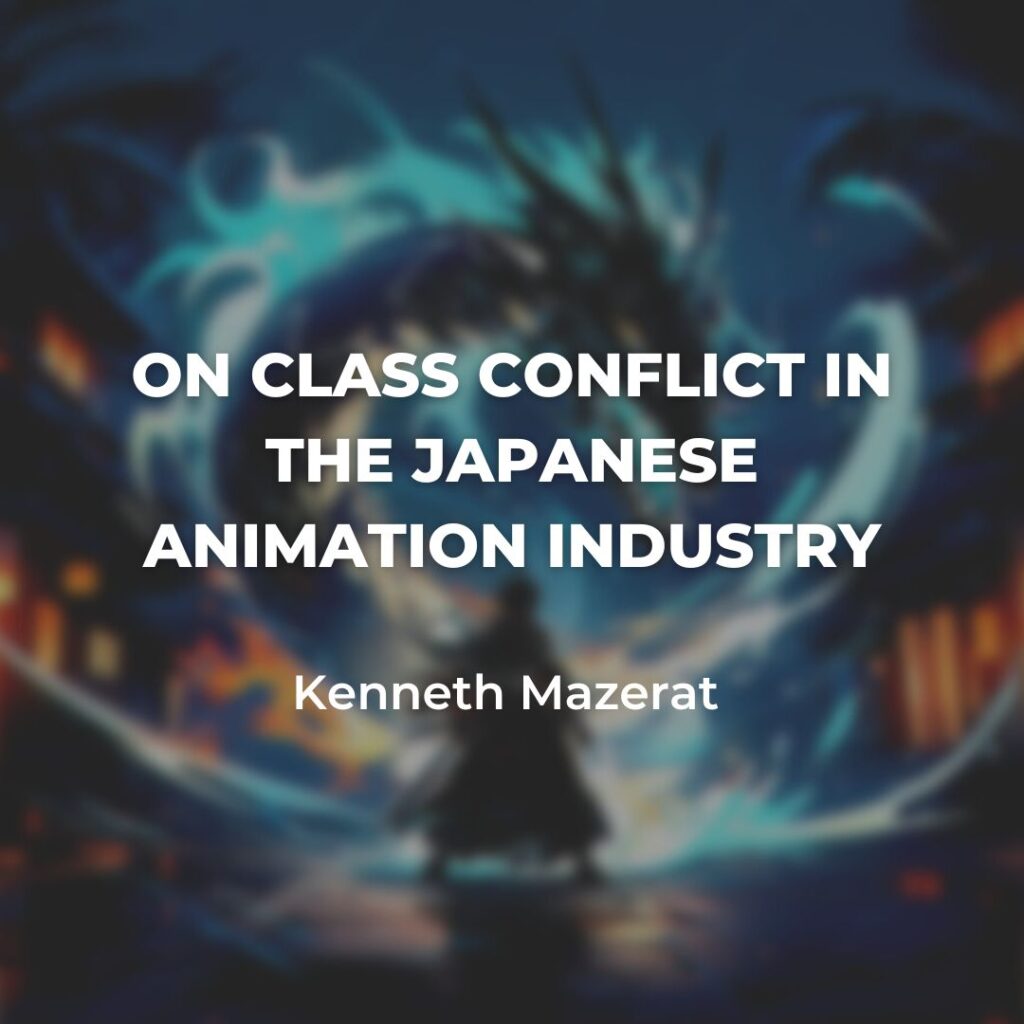
On Class Conflict in the Japanese Animation Industry.
Kenneth Mazerat, a dedicated anime enthusiast and student, delves into the intricacies of class conflict within the Japanese Animation Industry in his piece “On Class Conflict in the Japanese Animation Industry.” By examining the dynamics of class struggle and the exploitation of workers in the anime sector, Mazaret sheds light on the need for organized labor. His exploration emphasizes the significance of addressing class conflict and ensuring equitable access to the means of production in the realm of Japanese animation and beyond.

Get Paid to Create!
We publish stories submitted by young Chicagoans, a.k.a. you! You can submit op-eds, digital content, poems, and photos. Selected contributors will be paid $100 per published piece. Pitch us a story here.
